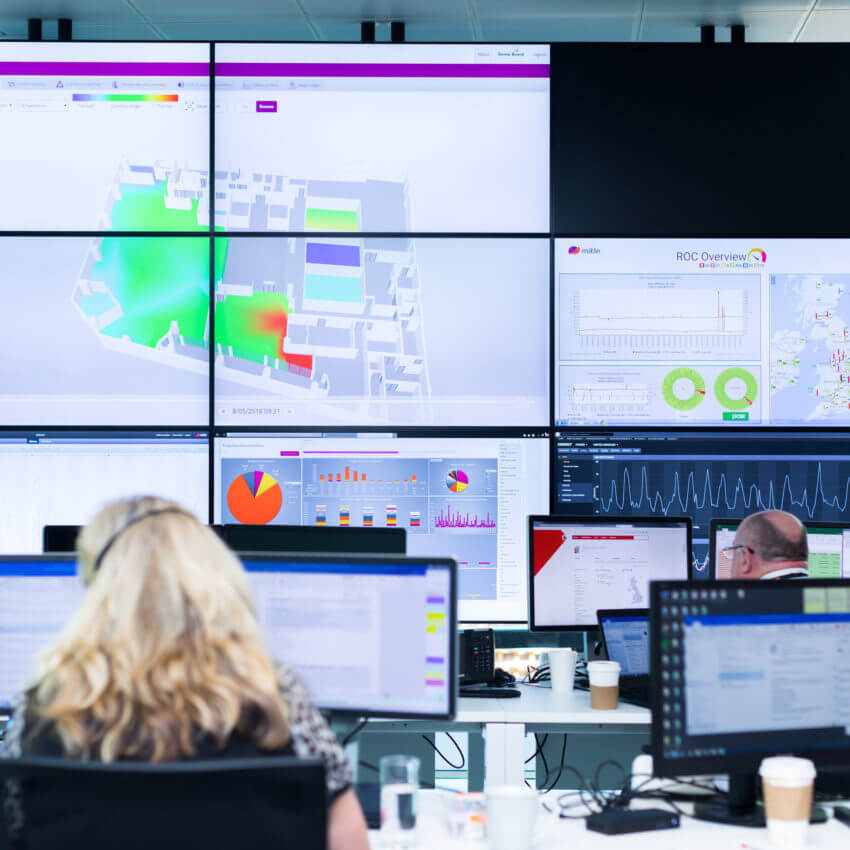Facilities Transformation: how digital-first changed the game forever
Digital transformation isn’t new, many organisations have been working on it for years. But it’s the pace of digital change, accelerated by the pandemic, which has really brought it into the mainstream. Facilities management wasn’t a laggard when it came to data and digital transformation, but neither was it a trail blazer. Now, things have changed. FM is leading the way and driving board-level decisions.
Additional challenges, like inflationary pressures, supply chain disruptions and energy security, have put a greater emphasis on the role of data and analytics to inform the way forward. Now, for FM leaders, the biggest challenge is the quantity of data available and how to link it to organisational vision and strategic goals.
This prompts a number of questions: Do leaders have the right technology and actionable data to support their digital-first ambitions? Are we collecting the right data and making the most of what we have? And what will it all mean for facilities managers in the future?

For greater insight into the current challenges, Mitie collaborated with the workplace consultancy Nordic Foresight to understand both the challenges and how to respond. The research included in-depth interviews with 20 senior leaders from a range of industries.
In a series of webinars aligned to the research, Nordic Foresight’s CEO, Jeffrey Saunders, shed light on the findings. In the webinar, How actionable are your data insights in FM?, he outlined why now is the time for FM to step up and enable organisational ambitions as they orientate towards digital-first working.
Digital technology is helping facilities managers meet operational challenges
For most organisations, any resistance to a digital-first working model was swept away during the pandemic. As a result, digital technologies, and increased access to operational data, are transforming how we work and how we engage with the built environment.
Digital technology helps us to automate boring or repetitive tasks, tackle hazardous activities, and to work more efficiently. Sensor technology makes it easier to collect environmental and utilisation data. With a better understanding of our workplaces, and how to enhance them, we can improve employee wellbeing and productivity.
Key drivers for technological change in the built environment include the need for:
- Better information for action: e.g., using data analytics to get a better picture of asset performance, predict issues and inform predictive maintenance before issues become problems.
- Faster, more secure connections for data transfer and a greater investment into technologies like blockchain.
- Better and new types of management systems that control building assets and integrate seamlessly.
- Greater automation that helps building users help themselves, like apps that allow them to report building issues or book desks remotely.

Also, digital technologies help facilities managers deal with wider challenges including:
- Developing and servicing workplaces, and other facilities, which improve occupant health and wellbeing.
- Reducing the environmental footprint of facilities. Managing the flow and consumption of materials and utilities, like water, waste and energy. Most organisations have net zero goals and actionable data is key to achieving their targets.
- Providing operational data that enables us to do more with less, e.g., by simplifying workflows.
Intelligent use of data in FM has never been so important
These are uncertain times and, as one senior leader on the research panel said, “There is a renewed focus [at board level] on data, data accuracy and data reporting. Executive boards want that data quicker, faster, and cut into different ways.”
Focus on data has never been greater. Data gathered on occupancy and utilisation, energy and procurement, are all critical to informing operational efficiency.
However, what’s needed is not more data, but better analytics linked to organisational strategy and the transformation agenda. While some senior leaders are confident in their adoption of digital-first, others are struggling to link their data to good FM decisions.
To support the move towards a digital-first model, facilities managers will need a clear understanding of what it means for their organisations. It won’t be enough to make sense of the data collected at an operational level.
It will also be necessary to understand the strategic priorities of the organisation and how the data can be used to increase productivity and reduce operational risks.
At Mitie, we think it’s a game changer for FM. It’s integral to what we call the Science of Service®.
The challenge is to focus on what’s important
Digital transformation impacts the organisational model, operations, and customer and employee experiences.
Apart from a solid digital platform, data is the key foundation and it’s what adds value for organisations. But an organisation’s ability to refine and drive more value from it, comes from focusing on what’s important, analysing it and linking it to strategy and leadership ambitions.

Working alongside specialists like data analysts and behavioural scientists will help in understanding the strategic and operational drivers transforming the FM space.
Your organisation’s workplace strategy, whether fully in-office or hybrid working, will have implications for how core facilities are managed, used and serviced.
Facilities managers must get deeply involved in the data to understand what, and how, their building users are doing. To do so, there must be much closer alignment between FM professionals and data specialists.
Implications for FM
Data analytics and challenges around digital transformation are leading to radical changes in the FM industry focused on:
- Developing the leadership and working models that lead to new and interesting ways to drive value.
- Enabling process automation and simplifying workflows.
- Conversations around the right service organisation, the right level of service delivery, and who should be providing the services. Consideration must also be given to what should be automated, what should be delivered by people, and what should be self-serviced by end-users.
- The right use of facilities and the right degree of operations and maintenance at the right part of the building portfolio.

All of these will have key implications for FM as the data management challenge is addressed.
Listen to the full webinar to hear more on the importance of digitalising your organisation’s assets and operations to close gaps and develop new services. Plus, get details on frameworks for applying the digital technologies and data analysis that will benefit your organisation, operations, customers and staff.
How actionable are your data insights in FM? is part of our Science of Service® series. The series showcases how technology, innovation and intelligence are pushing the boundaries and transforming facilities management.
Read next
Get ready for facilities transformation
How can FM leaders face the challenging headwinds of today’s business world head-on? In the Mitie Science of Service® white paper, we set out to highlight the most pressing issues in facilities management, and…

Webinar: Are your people thriving with hybrid working?
Is your hybrid working strategy fully implemented and optimised? Is your workforce supportive of your approach, and feel that their needs have been addressed? Getting workplaces ready for a safe and productive return of…

The Science of Service in the words of our people
What learning is Facilities Management taking from the automotive industry? How is virtual reality equipping our engineers with the knowledge to deliver that all-important first-time fix? And how are Mitie reducing customer alarm incidents…